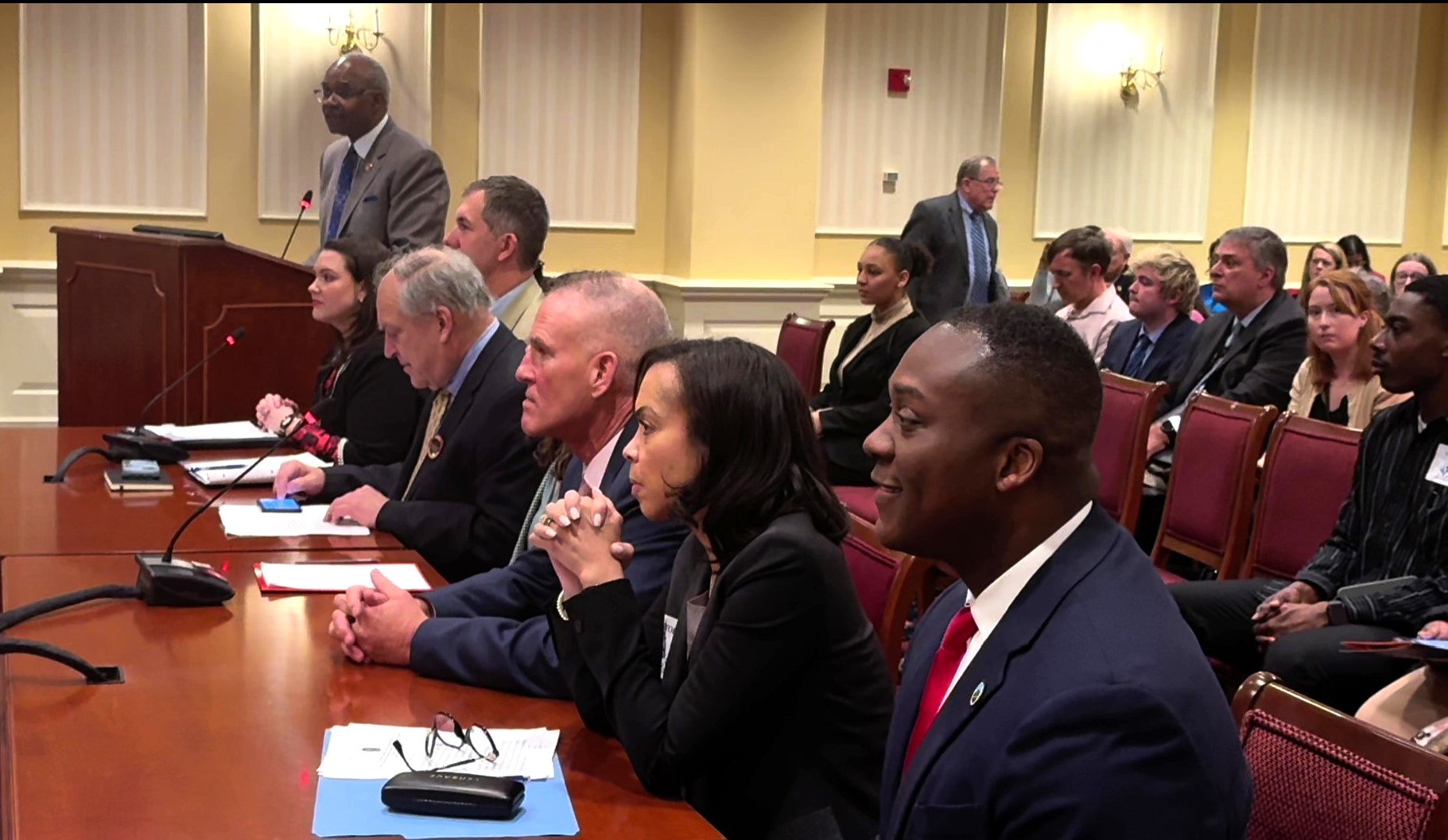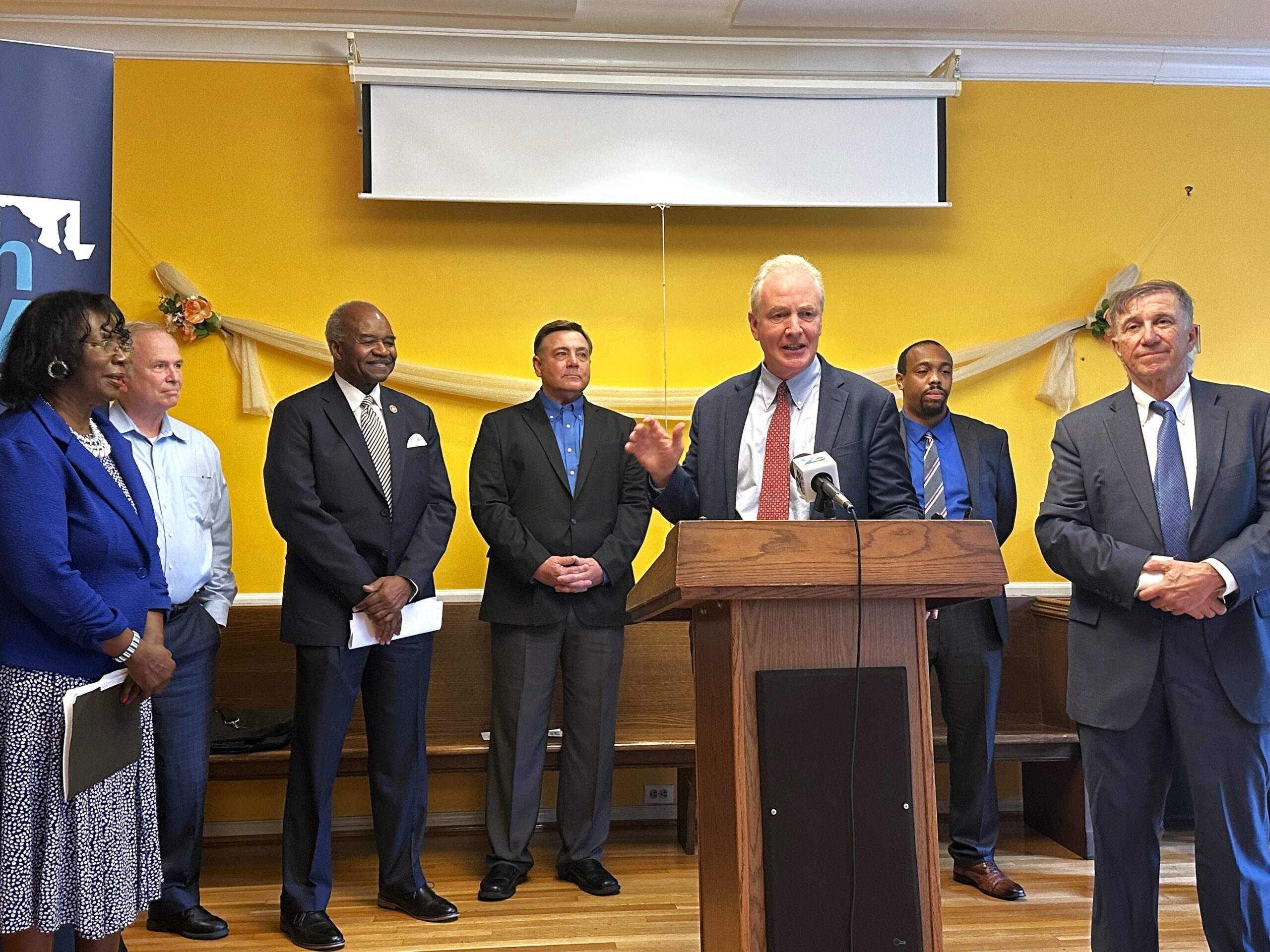
A Maryland Senate committee reviewed proposed legislation Wednesday that would require local school boards to provide more transparency about their budgets.
Senate Bill 1026, sponsored by Sen. Benjamin Brooks (D-Baltimore County), would require the State Board of Education to adopt a process for the uniform and timely reporting of local school board budget information to county officials and would set guidelines for how budget information is organized on public websites. It would also limit certain transfers within the school budget to only be made with the approval of a county council or county board of commissioners.
The majority of officials who testified Wednesday before the Education, Energy and Environment Committee touted the measure as a way to promote accountability and give local governments more say in the schools’ budgetary process.
But there’s disagreement over how much control the local governments should actually have.
The bill would enable a school board to transfer more than 1% of the total funding in a “major category” of a budget only with the approval of a county commission or county council.
This would include funds held in reserve, certain federal funds received in the last fiscal year, and the amount of funds held in trust or otherwise dedicated for long-term obligations for retiree health care costs or other post-employment benefits.
Some of the 14 major budget categories include administrative personnel, instructional salaries, health services and special education.
A few officials who testified said the 1% could equate to up to $1 million of an annual school district budget, depending on the size of the district and its annual spending plan.
The bill does allow for a school board to make a transfer without the approval of a governing body if it needs to be expedited based on extenuating circumstances.
Brooks said the legislation would require the state Board of Education to establish a uniform procedure for all local school boards to follow when reporting their budgets to governing bodies.
“This bill will not mandate new or more reporting than already required by law, and it does not give counties authority or decision-making control over school budgets,” he said. “How public dollars are being spent should be accessible to the public.”
This isn’t the first time county leaders have requested greater transparency when it comes to overseeing how education money is spent.
Current state law allows for local school boards to balance school budgets and operate independently. In addition, school boards can transfer money to certain budgetary items “with the approval” of a governing body.
Although the Maryland Association of Boards of Education supports the bill, it wants the school systems to automatically be able to transfer funds, without outside approval, when the expenditures total less than 15% of a budgetary category.
John R. Woolums, a lawyer who represents the association, said jurisdictions are working on a new statewide financial reporting system. In addition, school officials must adhere to certain procedures of when it comes to reporting financial information, student achievement and other data through the Blueprint for Maryland’s Future education reform plan.
Woolums said some of the state’s largest school systems do not seek prior approval from their county governments before transferring funds between the 14 major categories in their budgets.
“This adoption of a uniform, one-size-fits-all standard will be extraordinarily disruptive,” he said.
Three local school officials who testified online said they already report on some money that may be transferred during the school year and disclose this information at school board meetings. Schools receive local, state and federal dollars for a variety of resources.
Karen Acton, chief financial officer for the Charles County Public Schools, said the school system is routinely audited by the state Department of Legislative Services’ Office of Legislative Audits and the state Department of Education.
“The results of these audits are posted on our website. We produce financial statements that are shared with our board of education and our county,” said Acton, who added staff will appear before the school board and county officials regularly to provide financial updates.
The House version of the bill will be discussed Thursday before the Appropriations Committee.




 Creative Commons Attribution
Creative Commons Attribution